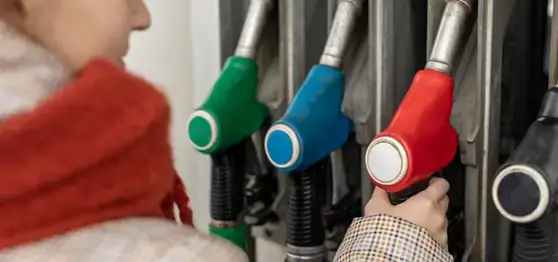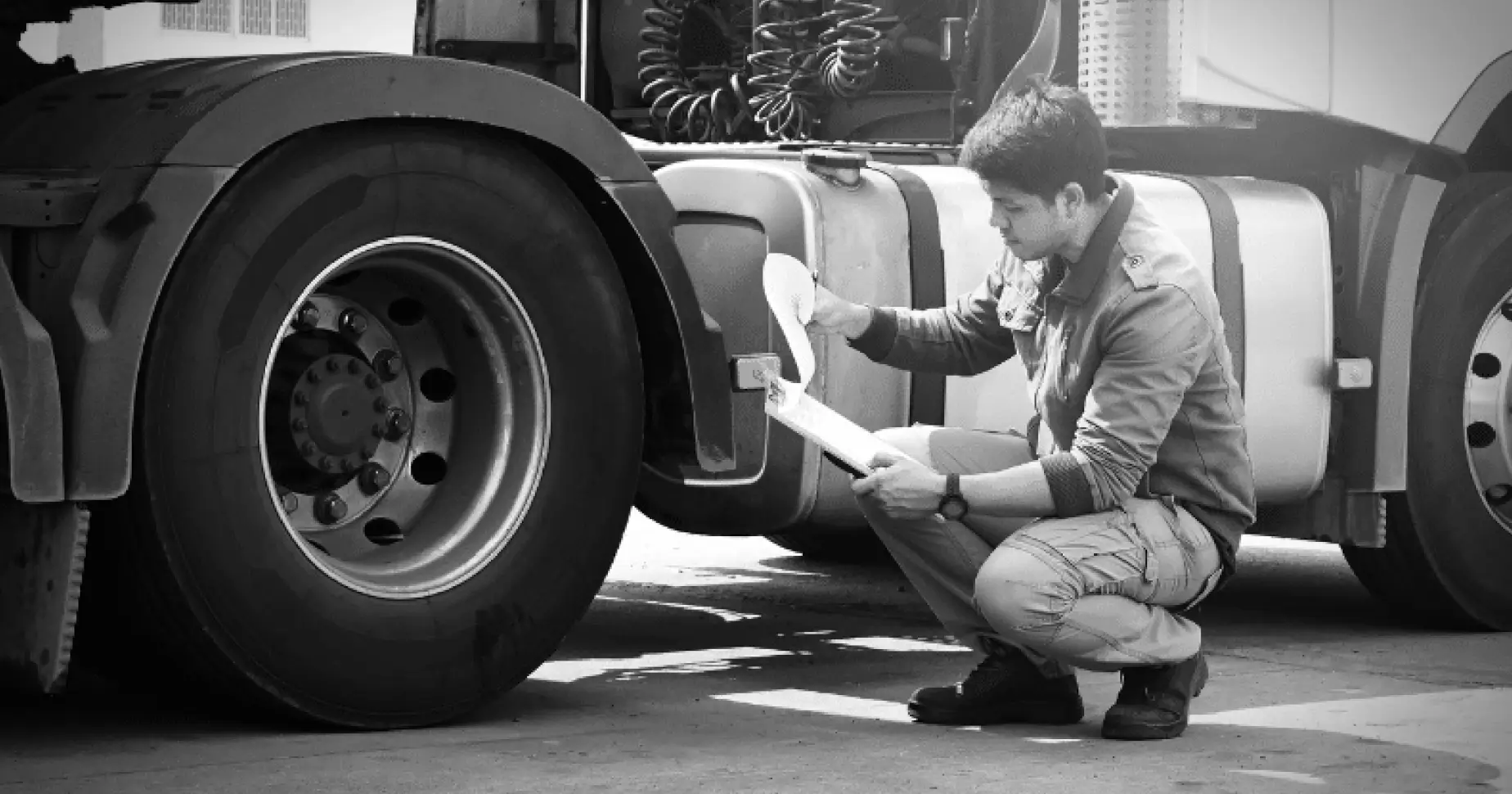Where diesel thrives in the aspect of fuel efficiency and torque, petrol engines are known for their performance and speed.
Both fuels are derived from crude oil through the process of fractional distillation, but vary in their characteristics due to their refining processes.
Your choice between petrol and diesel will also be influenced by the region you live in, due to the prices and the regulations considering each fuel, whether it’s gas or diesel.
“Is gas petrol or diesel?” you may ask. To clear your confusion, gas is a short form of gasoline, which Americans call petrol.
However, your ultimate decision will be based on your vehicle type and overall lifestyle.
Key Takeaways
- The key difference between petrol and diesel lies in their chemical composition and combustion processes, with diesel being denser and containing more energy per litre compared to petrol.
- Diesel engines utilize a higher compression ratio, allowing for better fuel efficiency and lower CO2 emissions, whereas petrol engines rely on spark plugs for ignition.
- Diesel vehicles often provide better mileage and torque compared to petrol cars, making them suitable for heavy-duty applications despite potential pollutants like nitrogen oxides.
- Petrol is primarily used in spark-ignited petrol engines, while diesel is produced for use in diesel engines, each having distinct advantages and disadvantages in terms of fuel consumption and power output.

What is Petrol?
Petrol, often called gasoline, is a volatile, flammable liquid derived from crude oil during the refining process. It serves as the primary fuel for spark-ignition internal combustion engines.
It’s mainly composed of hydrocarbons, including alkanes, cycloalkanes, and aromatic hydrocarbons, all compounds that are essential for the spark plug technology needed to start up petrol engines.
When you rev up a petrol engine, a series of reactions take place, sometimes referred to as the Otto cycle. Petrol is mixed with air by a carburettor in precise amounts within a compressed cylinder, which essentially increases the pressure and temperature.
A spark plug at the top of the cylinder emits a small spark to create a mini explosion that drives the piston back up. The cycle repeats itself, creating mechanical force used to power the vehicle.
Petrol-powered vehicles also have a lower upfront cost compared to diesel due to their simpler construction, which extends to lower manufacturing costs. The engines also warm up faster because of faster ignition, making them suitable for everyday use and short-distance travel.
“ However, petrol engines are also known to consume more fuel than diesel engines for the same distance. While being cleaner in other aspects, like low NO2 and particulate emissions, they release more carbon dioxide, contributing to climate change. The engines of the vehicles also wear out faster than their diesel counterparts, due to higher RPMs and temperature required to start them up.
What is Diesel Fuel?
Like petrol, diesel is also produced during the refining process of crude oil, but from lower fractions than petrol, with long-chain hydrocarbons, explaining its higher density.
The mechanism of diesel engines slightly differs from that of petrol engines. While both use an air-fuel mixture to drive power, the air within diesel engines is initially compressed to high pressure and temperature before the fuel is injected. The high temperature and pressure are sufficient to cause a controlled explosion used to drive the piston, thus eliminating the need for spark plugs.
“ The long-chain hydrocarbons make diesel more dense, allowing it to extract more energy per unit of fuel than petrol or gasoline, making gas a viable option for a long-distance trip. Diesel engines are also more durable than petrol engines, and their fuel efficiency results in less carbon dioxide emissions for the same distance compared to petrol.
Just like petrol, diesel has its fair share of drawbacks. It’s not only the fuel that is expensive, the engines also have a fair share in the cost. Its complex construction and multiple components like fuel injectors, turbochargers, and particulate filters add up to the manufacturing costs and in case of damage, can be costly and difficult to find or repair.
Apart from that, diesel engines also emit more nitrogen oxides and particulate matter, depreciating air quality while taking longer to warm up, making them less functional for frequent or short-distance travel.
Key Differences between Petrol and Diesel
Even though there are notable differences between petrol and diesel, here are some of the key differences that distinguish them.
Refining Process
Both fuels’ initial refinement step is fractional distillation. However, after their separation, petrol and diesel undergo different processes to reach their optimal states.
Petrol goes through catalytic reforming after fractional distillation of crude oil, to increase its octane rating while diesel may have to go through hydrocracking. However, no additional processes on diesel are required due to its naturally higher density.
Quality Testing
Since both fuels have different physical and chemical properties, their quality testing methods are also different.
Petrol uses octane rating to measure its resistance to knocking, or pre-ignition, while the cetane number for diesel measures how quickly the fuel lights up.
Ignition Process
The spark plug ignition method uses a spark plug to cause an ignition in petrol engines. However, the high temperature and pressure in diesel engines by the compression ignition method, is enough to ignite the fuel.
Engine Design and Performance.
The design of the diesel engine is a lot more complex than that of the gasoline engine. Therefore, it has a high upfront cost.
Diesel engines produce more torque, which is great for towing, while petrol engines have higher RPMs for better performance. Diesel engines are about 20-30% more fuel-efficient than petrol vehicles, which makes their initial costs worth it for many drivers.
Environmental Impact
Diesel engines produce more particulate matter and NOx than petrol engines, while the latter produces more CO2 due to higher fuel consumption, contributing to climate change.
Diesel engines are noisier than petrol engines, due to higher compression rates.
Fuel Prices
Petrol is mostly cheaper than diesel, but the vehicles need to be refueled more often than diesel engines, due to lower fuel efficiency which add up to the overall costs.
Choosing Between Petrol and Diesel
Here are a few factors you can consider to make your decision easier.
Driving Habits
Your driving habits play a major role in determining your fuel of choice. If you are a person who takes the highway often, you might want to consider using fuel with more efficiency, even if it comes with a high initial cost, since it will prove beneficial in the long run.
However, the expenses may not be worth it if you are mostly in the city and need a vehicle for your daily business and errands.
Government Regulations and Incentives
Fuel prices might also influence your choices since they vary in different regions and constantly fluctuate due to the area’s policies.
In some countries, diesel is favored by the government’s policies due to emission control, as well as other incentives, where subsidies may be provided to encourage its use.
Type of Vehicle and Lifestyle
Diesel is mostly used in vehicles that require high torque and have commercial purposes, like trucks and buses, where the high price is worth the efficiency it comes with. On the other hand, petrol is best for vehicles for everyday use and prioritize user comfort and performance.
You will ultimately need to refer to the type of vehicle you own as well as your lifestyle, before making any rash choices.
When to Choose Petrol
Petrol is best for lightweight vehicles and sports cars, with high-revving engines and good acceleration. The engines are better equipped to handle frequent acceleration and deceleration, making them ideal for everyday driving. Vehicles with petrol engines also have a lower upfront cost as compared to diesel, with high RPM that ensure a smooth riding experience.
When to Choose Diesel
Diesel is best for long-distance travel, especially on highways where you are traveling at uniform speed, without constant acceleration or deceleration. Diesel is also more efficient than petrol due to its higher density, so if the upfront cost doesn’t matter to you much in the face of longevity, diesel might be your number one choice.
Apart from that, diesel engines also have a long lifespan and are great at producing higher torque, making them ideal for towing trailers, carrying heavy cargo, or driving large vehicles like trucks and SUVs.
Petrol Vs. Diesel: Making The Right Choice
Both petrol and diesel have their pros and cons, but ultimately, the choice depends on the type of vehicle you own and your overall lifestyle. As a responsible citizen, consider the regulations in the area, as well as the environmental impact of each fuel.
Stick to the manufacturer’s recommendations and avoid making choices on personal whims to prevent any lasting damage to your vehicle.
Nationwide Fuel Delivery right on schedule
Fuel Logic keeps your fleet moving with our 24/7 nationwide fuel delivery —reach us anytime for on-site fueling.
FAQs (Frequently Asked Questions)
Q1: Is petrol the same as gasoline?
Yes, petrol and gasoline refer to the same fuel type. The term “Petrol” is commonly used in countries like the UK and EU, while “gasoline” is the term used in the US and Canada.
Q2: How to differentiate petrol and diesel in a gas station?
Petrol and diesel are labeled clearly at gas stations. Pumps for diesel often have a green nozzle or label, while petrol is marked with octane ratings (e.g., 91, 95, or 98) and has black or yellow nozzles in some regions. However, it’s always best to check the labeling to avoid mistakes.
Q3: What happens if you use diesel instead of petrol?
The engine won’t start, or have great difficulty in starting, which may be accompanied by throttling noises you will be able to detect quite easily. Diesel in a petrol engine may also damage the fuel pump or injector in the system, leading to costly repairs.
Q4: Can you use diesel in a petrol engine or vice versa?
You should never put a gas in a diesel engine or vice versa. The mechanisms in which both fuels work are quite different, owing to their different properties. They can’t be replaced with one another, and doing so will cause lasting damage.
Q5: Which engine type is better for long-distance driving, petrol or diesel?
Diesel engines are better for long-distance driving due to higher fuel efficiency, giving you better mileage than petrol, especially on highways where you mostly travel at uniform speed. However, you can’t use diesel if you own a petrol-powered vehicle unless you want to incur lasting damage to your engine.
Fuel Up with Fuel Logic: Your Trusted Partner for Diesel and Petrol Solutions
Looking for reliable and efficient fuel delivery services? Fuel Logic has you covered! Whether you need bulk fuel delivery, diesel delivery services, or DEF Solutions, we ensure your operations run smoothly.
With a commitment to convenience and quality, our fuel delivery services are tailored to your needs.
Visit our website for seamless fuel solutions!
Explore our locations or FAQs for more information.
Ready to fuel up?
Order now or give us a call at Fuel Logic today.







